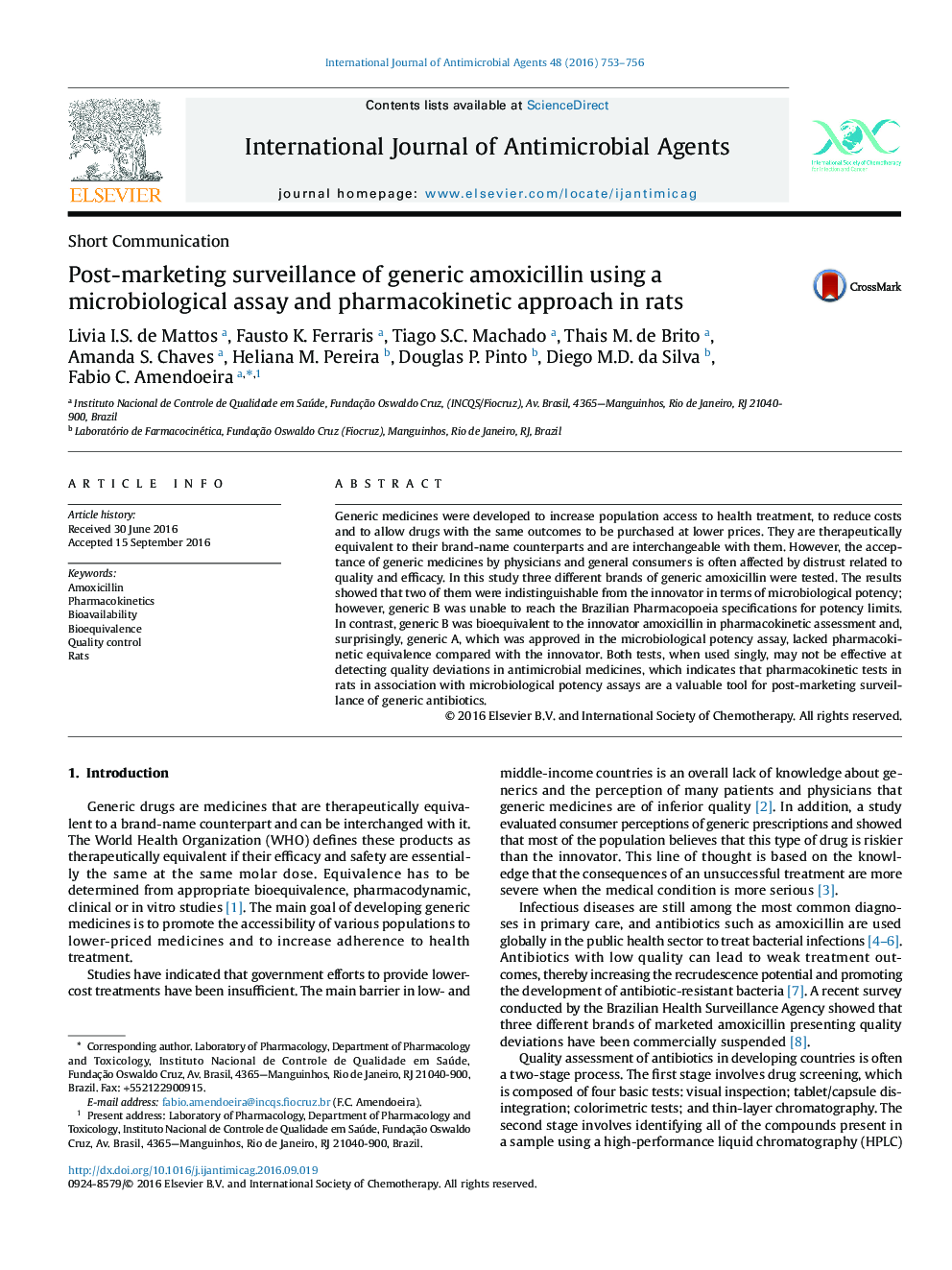| Article ID | Journal | Published Year | Pages | File Type |
|---|---|---|---|---|
| 5666874 | International Journal of Antimicrobial Agents | 2016 | 4 Pages |
â¢Post-marketing surveillance of generic antibiotics is not effective to detect quality deviations.â¢Need for review and development of other approaches to QC for generic drugs.â¢Pharmacokinetic tests in rats in association with microbiological potency assay proposed.
Generic medicines were developed to increase population access to health treatment, to reduce costs and to allow drugs with the same outcomes to be purchased at lower prices. They are therapeutically equivalent to their brand-name counterparts and are interchangeable with them. However, the acceptance of generic medicines by physicians and general consumers is often affected by distrust related to quality and efficacy. In this study three different brands of generic amoxicillin were tested. The results showed that two of them were indistinguishable from the innovator in terms of microbiological potency; however, generic B was unable to reach the Brazilian Pharmacopoeia specifications for potency limits. In contrast, generic B was bioequivalent to the innovator amoxicillin in pharmacokinetic assessment and, surprisingly, generic A, which was approved in the microbiological potency assay, lacked pharmacokinetic equivalence compared with the innovator. Both tests, when used singly, may not be effective at detecting quality deviations in antimicrobial medicines, which indicates that pharmacokinetic tests in rats in association with microbiological potency assays are a valuable tool for post-marketing surveillance of generic antibiotics.
